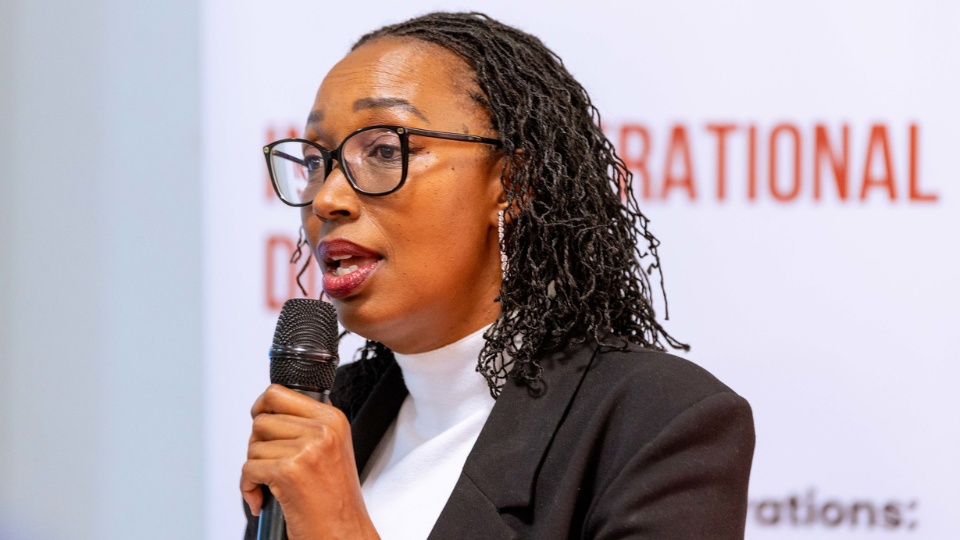On September 27th, Aegis Trust organized and hosted an Intergenerational Dialogue at the Kigali Genocide Memorial under the theme: ‘Healing Across Generations: The Role of Youth and Elders in Rwanda’s Healing Journey’. This dialogue brought together Aegis boundary partners—researchers, teachers, parents, youth, and policymakers—to discuss their respective roles in Rwanda’s journey of healing from the consequences of the 1994 Genocide against the Tutsi.
In his opening remarks, Aegis Country Director Alphonse Munyentwali emphasized that engaging in meaningful conversations between generations undoubtedly strengthens unity among Rwandans; “It is through listening to the experiences and paths others have taken that we can learn real-life lessons. Through testimonies from authors like those we have here today, we can chart our own paths to development, sustainable peace and unity in our country.”
The discussion featured a book presentation by Henriette Mutegwaraba titled ‘By Any Means Necessary’. In her book she shares her journey before the genocide, including how she discovered her ethnicity at school, the persecution of Tutsi people over the years, the deaths of many family members during the genocide, and her life afterwards.
Henriette attests that the older generation can play a role in healing the younger generation, who have inherited trauma as a result of the genocide. “The truth sets us free,” she said. “What conversations do we have with our children when no one is around? Are they the same as the ones we have in public? Teach your children to love one another and to tell the truth. That is the only way we can preserve our unity.”
Taking part in a panel discussing the event’s theme, Dr Jean Pierre Ndagijimana, a senior clinician at Solid Minds, advocated bridging the generational divide through truthful and honest conversations to address the many questions of young Rwandans born after the genocide who also suffer from its consequences.
“I believe we ought to build a bridge between us—the older generation—and the younger generation. This bridge will not only provide healing but also bring understanding and unity.” He added, “Children born from both perpetrators and survivors need answers. We should give them answers that do not just satisfy our hearts, but ones that help build our future as a country. Let us not delay or leave them to learn from others.”
During the dialogue, audience members highlighted the profound role of forgiveness in the healing process for survivors. They emphasized that, while the journey toward forgiveness is deeply personal and often fraught with pain, it has proven to be a powerful tool for emotional and psychological recovery.
In closing the dialogue, Theoneste Rutayisire, Head of Research at the Ministry of National Unity and Civic Engagement, emphasized the need for more conversations and books about the Genocide against the Tutsi, not only to teach the younger generation about the history of the genocide but also to serve as testimony to Rwanda’s past. “Dialogues like this one are a way for the younger generation to learn our history,” he said. “We must ensure we pass on our unity to our children and future generations. That way, we will leave them with a strong and united country.” He concluded by saying, “If we do our best to heal our wounds, and those who are wounded, our country will develop and become more resilient. And as has been said, what brought us to this point will never happen again.”


